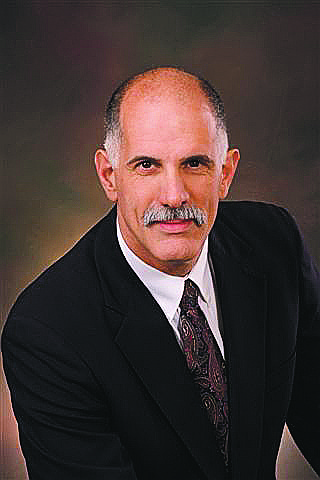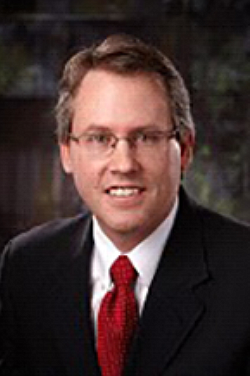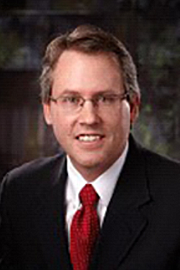Form of government group hears argument for quality elected officials
Kootenai County Republican Central Committee Chairman Brent Regan and Treasurer Steve Matheson say the "effectiveness" of county government should not be measured by structure but by the people elected to run it.
During a Wednesday night meeting of the optional forms of government study commission, participants asked the two officials for their thoughts on how Kootenai is operating. Consisting of nine members and three alternates, the commission is tasked with researching if the current style of Kootenai County operations best serves constituents.
Referencing the set of 14 questions reiterated by Optional Forms of Government Study Commission Chairman Dave Botting at nearly every meeting, Regan noted that one task is to decide whether the current structure is the "most efficient and effective."
"It's not," Regan said, laughing.
"Certainly, there is a more efficient form of government. And the most efficient form of government is a benevolent dictatorship. It always has been throughout time and history," Regan added.
While Regan expressed that this form of leadership is used by businesses — with the "boss at the top" that "makes all the critical decisions top to bottom," it strips any sense of accountability when applied to government. In Regan's opinion, the commission should not be looking for maximum efficiency but a balance of efficiency and accountability to keep the system stable.
"We are all forced to be customers to the government we live in. If we don't pay our taxes, if we don't give them money, then they can come to us with guns and force us to do it, or take our property, or put us in jail," Regan said. "The stability comes from the ability for the people to fire their elected officials and take away that power that they have to compel you to pay to put the gun to your head and take your money."
Based on his understanding of the structure, Regan said the county-manager form would not have strong voter accountability.
Matheson compared this to the idea of checks and balances within the county, as executed by the six elected officials — Treasurer, Clerk, Sheriff, Coroner, Prosecuting Attorney and Assessor — and the county commissioners. Matheson explained that it's essential to have those checks to dilute officials' power.
"The awesome power of government is something completely different," he said. "There are so many different elements instilled within county government that you want them separated as much as possible, in my opinion."
Under a county manager, Matheson said commissioners would have more power. That power would increase more, he said, if the officials became hired instead of elected.
"As an elected official, I've had the courage and the ability to step up and say no. We're not going to write that check for that purpose," Matheson said. "When the commissioners make a decision that I disagree with, I am going to be one of the first to stand up and say the check is not being cut."
The balance between the board and elected officials is "a constant struggle" but a means, Matheson explained, to avoid a concentration of power.
"If anything, I would reduce the power of the commissioners, not increase," he said.
A significant influence of the 1996 study commission's decision to change the government structure was growing pains from the two decades prior. Regan noted that while the county hasn't stopped developing, it hasn't reached the population of Idaho's largest county, Ada, which uses the same structure as Kootenai.
In conversations with Rod Beck, an Ada County commissioner, Regan said the main differences in design are:
• Three deputized clerks.
• An office manager.
• A public information officer.
• A chief operating officer.
Regan said that through a printed version of the job description, the chief operating officer is a hired position tasked with overseeing, organizing, and improving county operations by advising and assisting commissioners in developing policy, procedures and practices. Regan recommended that the study participants interview the Ada commissioners as part of their information gathering.
"This is exactly what we need here," he said. "We don't have to run a ballot initiative. We just have to hire the guy and say go to these department heads and establish a good relationship."
Regan recommended that the commission consider the work of larger counties, like Ada, when gathering research. If the possibility of hiring something similar to a COO was available, he noted, it could lead to higher efficiency without bringing forward a new structure to voters.
"I can tell you categorically that if you go to the voters and say we're going to take away one, two, or three of your elected officials, that will fail," Regan said. "You're going to battle with a highly organized political machine used to getting their people elected and getting medical status, and we'd be coming out full-fledged against not taking away elected officials."
Matheson noted that the difficulties perceived in the current government are not solely from the structure — which he added has served communities well for over 100 years.
"The people that we elect for office. That's the issue," he said. "If we elect the right people in our community, then the time to vet the people who are elected to office 90% of these issues go away."



